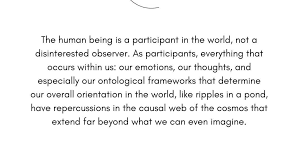
Introduction to Nihilism
Nihilism, a philosophical doctrine suggesting the denial of meaning or value in life, has gained significant attention in recent years. This perspective challenges established beliefs, questioning the very foundations of morality, existence, and purpose. In a world increasingly filled with uncertainty and rapid change, understanding nihilism is more relevant than ever, especially among younger generations grappling with existential angst.
Historical Context
The term nihilism originates from the Latin word ‘nihil’, meaning ‘nothing’. It first gained prominence in the 19th century, primarily through the writings of Friedrich Nietzsche, who examined the implications of a world devoid of inherent meaning. Nietzsche famously claimed that “God is dead,” reflecting the decline of traditional values and the rise of individual interpretation of morality. This philosophical evolution set the stage for modern existential thought and critiques of societal structures.
Nihilism in Modern Society
Today, nihilistic views can be observed in various cultural and social movements, especially in art, literature, and film. The rise of social media and the internet has facilitated the rapid spread of nihilistic ideas, often presenting a bleak worldview. This perspective resonates particularly with individuals disillusioned by societal norms, political instability, and environmental crises. Many young people express feelings of aimlessness or detachment, leading to the increased popularity of nihilistic philosophies as a means of coping with these uncertainties.
Potential Implications and Critiques
While nihilism can be seen as liberating—allowing individuals to break free from arbitrary constraints—it also carries significant risks. Critics argue that a nihilistic outlook can foster despair and apathy, undermining efforts to effect meaningful change in society. Conversely, some philosophical frameworks propose a constructive form of nihilism, advocating for the creation of personal meaning in a seemingly indifferent universe. This approach encourages individuals to embrace existential freedom while acknowledging the complexity of their emotions and the world around them.
Conclusion
In conclusion, nihilism is a multifaceted philosophy with profound implications for contemporary thought. As society grapples with various crises and challenges, the relevance of nihilistic ideas continues to grow, prompting individuals to question the meaning of existence and their place in the world. Understanding these perspectives can allow for a clearer dialogue around the search for purpose and meaning, especially in a time marked by uncertainty and change. By engaging with nihilism critically, readers can navigate its complexities and consider how to craft their own narratives in the face of existential challenges.






